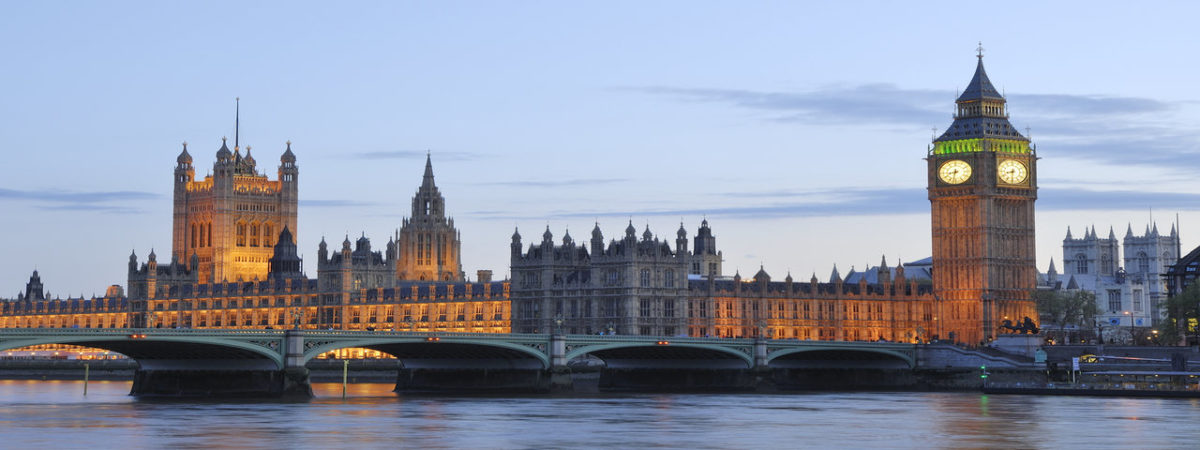Libertarianism and pollution: the limits of absolutist moralism
SUGGESTED



In some respects, the non-aggression principle accords nicely with moral common sense. Just about everybody believes that it is wrong to physically assault your neighbours, or to take their property without asking. We think it wrong to hurt innocent people even if we could make ourselves better off by doing so (“I really needed the money!”), or even if we could make society as a whole better off by doing so (“I was going to give it to Oxfam!”). In this respect, the libertarian non-aggression principle actually fits better with moral common sense than competing philosophies, such as utilitarianism, which countenance violations of individual rights for a supposed “greater good.”
What distinguishes libertarianism form mere common sense, then, is not the substance of its moral commitments but the consistency with which it applies them across the board. Punching your neighbour and taking his money without asking is wrong, we all think. But if it is wrong when you or I do it, asks the libertarian, why should it be any less wrong when it is done not by a single individual, but by a group of individuals calling themselves a government?
Thus, libertarians conclude, if theft is wrong, then so too is taxation. If slavery is wrong, then so too is conscription. If murder is wrong, then so too is aggressive war. And if all of these acts are wrong in principle, then neither the degree of harm nor the possible benefit that might be derived from inflicting that harm are relevant in determining its permissibility. Stealing a nickel from your neighbour is just as much an act of theft as stealing a thousand dollars. Our rights to bodily integrity and our justly acquired property are universal and absolute.
This is a radical view, with far-reaching implications for the scope of legitimate political power. But there is one radical implication of the libertarian commitment to non-aggression that has gone mostly unnoticed by libertarian intellectuals, and that poses a potentially devastating problem for the entire moral framework upon which libertarianism rests.
The problem is that libertarianism seems to imply that environmental pollution, insofar as it constitutes or involves aggression against other human beings, is morally impermissible. Not just a bad thing, mind you, but absolutely morally impermissible in the same way that theft, assault, and murder are. And this, it turns out, is an absolutely untenable position.
Consider, first, what pollution is. To pollute is to physically invade the person or property of another person without their consent. It is, to be sure, an invasion that typically occurs at the microscopic level. I drive past your house and bits of particulate matter get through the air into your home and your lungs. My garage band begins to play and thereby causes your eardrums to vibrate. I use my computer and send electromagnetic radiation into your body. But should the fact that we cannot see these invasions matter, as far as their moral status is concerned? They are unwanted intrusions upon that which is rightfully yours. And they are potentially harmful intrusions. Why should the fact that we cannot see them matter?
But now think about what it would mean to bring all pollution of this sort to an end. Almost everything we do creates physical interference with the persons and property of others. And almost none of this interference can plausibly be construed as consensual. Therefore, if non-consensual physical interference with others is absolutely impermissible, then almost everything we do is absolutely impermissible. And all that is left to do for a consistent libertarian is to hold his breath (don’t you dare exhale!) and wait to die.
Libertarian intuitions about interpersonal morality make a certain amount of sense when the problems under consideration are those involving discrete interactions between identifiable individuals. But thinking about pollution should lead us to wonder whether those intuitions make sense in a world increasingly characterised by the complexly interrelated activities of large numbers of dispersed individuals. The non-aggression principle gives us helpful and plausible guidance when it comes to issues such as theft and rape. But contemporary environmental problems such as automobile pollution, acid rain, and global climate change seem to require a very different sort of moral analysis – one that is both less individualistic in identifying perpetrators and victims, and less absolutist in the moral rights and duties it counsels.
The great theoretical problem for libertarians, then, will be how to keep the individualism and absolutism where it makes sense, while simultaneously discarding it where it does not. How can libertarians still maintain that it is wrong to impose a small tax on the wealthy, even if the social benefits would be enormous, while allowing that drivers are entitled to send small amounts of toxins into other people’s lungs since, after all, the social benefits of driving are enormous?
Perhaps there is some answer waiting to be discovered by future libertarian philosophers. My own view is that none of the (relatively few) attempts that have been offered thus far have been anything close to successful. And any solution that would succeed would ultimately have implications well beyond the problem of environmental pollution, pushing libertarians back from the radical, absolutist moralism of Ayn Rand, Murray Rothbard, and Robert Nozick, toward the more moderate classical liberalism of Adam Smith, David Hume, and Friedrich Hayek.
For more on this subject, see Professor Zwolinski’s paper on “Libertarianism and Pollution” here.
Read Jan Lester’s response on ‘The London Libertarian‘ (Libertarian Alliance).
4 thoughts on “Libertarianism and pollution: the limits of absolutist moralism”
Comments are closed.




This essay is full of holes, the most glaring of which are (1) that the author cherry picks self serving assumptions about how “libertarian philosophy” applies the NAP to the question of pollution and (2) completely ignores the libertarian context in which ALL property is private.
That being said, creating any pollution becomes an act of aggression the moment it is allowed to reach beyond one’s own property to encroach upon the property of another. The NAP allows for the victim(s) to take whatever defensive and or mitigating action (including violence) is appropriate to the circumstances.
No confusion whatsoever.
It would be interesting to know, if ALL property is private, who is the owner(s) of the Mississippi River, who should decide about navigation and pollution concerning it.
@ EZ
” (2) completely ignores the libertarian context in which ALL property is private.”
Is air private property? How do we establish what is private property? After all, the possession of stolen goods/land/people from other countries/neighbouring tribes was all once considered private property.
As where your wife, children, and surfs working on your land.
So, was everything above your land into infinity, and everything below your feet into hell.
Things change.
“environmental pollution, insofar as it constitutes or involves aggression against other human beings, is morally impermissible” This is true, but begs the question. It is not established that pollution is aggression rather than the use of a commons. For example, the air surrounding my property is not owned by me, but is a commons.